
College History
IN 2024
- On June 30, Dave Richardson steps down from his position as dean after a decade of service, returning to the Department of Chemistry to continue his research and teaching. As dean, he re-righted the college's budget after years of recession, hired more than 350 faculty members, and developed the Beyond120 program to push the boundaries of experiential learning. After his departure, former associate dean Mary Watt would assume the role of interim dean.
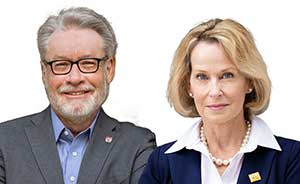
IN 2023
- World Sea Turtle Day is established in honor of the legendary researcher Archie Carr, and aims to raise awareness about sea turtles and the challenges they face.
IN 2016
- The Laser Interferometer Gravitational-Wave Observatory (LIGO) Collaboration, which has involved UF physicists since its early days, discovered that it had detected a “chirp” from colliding black holes in late 2015. The LIGO Collaboration continues to detect gravitational waves from long ago, faraway black hole mergers.
IN 2015
- Dave Richardson was named Interim Dean of the College of Liberal Arts and Sciences in June, 2014. In March 2015, he was appointed Dean of the college, providing leadership for the college’s 21 academic departments and more than 20 centers and programs. He manages more than $100 million in annual expenditures and approximately $40 million in annual sponsored research projects. He completed his undergraduate work in chemistry at Furman University in 1976. He received a doctorate in chemistry from Stanford University in 1981 under the direction of Nobel Laureate Henry Taube. He was a National Institutes of Health postdoctoral associate at the Massachusetts Institute of Technology and Stanford University prior to joining the University of Florida. His research is focused on physical inorganic chemistry.
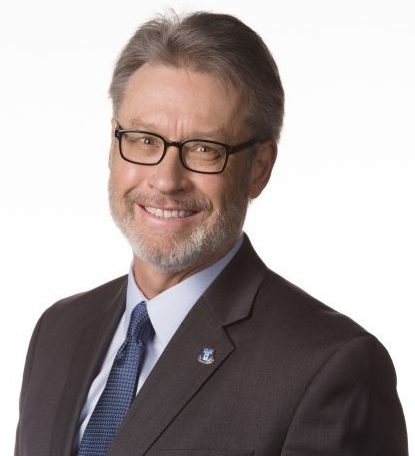
IN 2008
- Paul D’Anieri was hired as dean of the College of Liberal Arts and Sciences. D’Anieri received a bachelor’s degree in international relations at Michigan State, followed by a doctorate in government at Cornell University. In 1991, he was hired as an associate professor of political science at the University of Kansas. After the Soviet Union collapsed, D’Anieri won a Fulbright Scholarship to Ukraine, working as a visiting scholar at L’viv State University(opens in new tab). At Kansas he served as Associate Dean for International Programs (1999 to 2003), Director of the Center for Russian and European Studies (2003-2004), and Associate Dean of Humanities (2004-2008). He accepted a position as Provost and Executive Vice Chancellor at the University of California Riverside in June 2014.
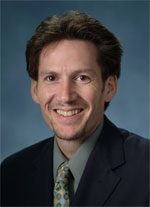
IN 2007
- Associate Provost Joe Glover became interim dean of the College of Liberal Arts and Science in January following the resignation of Dean Neil Sullivan. Glover’s relationship to the college dated back to 1982, when he was hired as an assistant professor of mathematics. He served as chair of the Department of Mathematics from 1993 to 1998 and as the college’s associate dean for faculty affairs from 1998 until 2001, when he was named UF’s associate provost of academic affairs.
- The Bob Graham Center for Public Service enrolled its first class of students at the start of the spring 2007 term.
IN 2006
- Following two years of restoration, the college opened the restored Kathryn Chicone Ustler Hall, the new home for the Center for Women’s Studies and Gender Research. Built in 1919, the structure fell into disuse in 1979 but was saved from demolition in 1988 when it was granted protection under the National Register of Historic Places. A generous donation from sociology alumna Kathryn Chicone Ustler in 2000 allowed for the vacant gym to be transformed into a 14,700 square-foot academic treasure. The restoration process began in 2004, and Women’s Studies moved into the facility in July.
- Ground was broken for Jim and Alexis Pugh Hall, future home of the Bob Graham Center for Public Service. Located in the heart of the UF historic district between Newell and Dauer Halls, the 40,000-square-foot facility includes a teaching auditorium and public space for lectures and events.
IN 2005
- The college established two new centers: the Center for the Study of Hindu Traditions, directed by Religion Professor Vasudha Narayanan, and the Center for Medieval and Modern Studies, directed by Language, Literatures, and Cultures Professors Mary Watt and Will Hasty.
- Robert H. Grubbs, who earned degrees in chemistry from UF, received the 2005 Nobel Prize in Chemistry. An organic chemist whose work on catalysis has led to a wide variety of applications in medicine and industry, Grubbs served as the Victor and Elizabeth Atkins Professor of Chemistry at the California Institute of Technology in Pasadena.
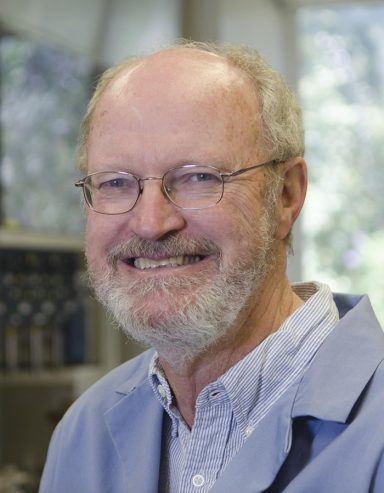
IN 2004
- Renovations began on the Women’s Gym, which was renamed Kathryn Chicone Ustler Hall upon completion. Ustler’s donation transformed the building into a 14,700 square-foot, three-level facility that houses classrooms, seminar rooms, and faculty and administrative offices for the Center for Gender, Sexualities, and Women’s Studies Research. It is the first UF academic building named solely after a woman.
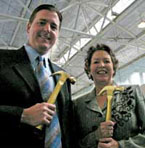
IN 2001
- After serving as interim dean for the 2000-2001 academic year, Neil Sullivan was named dean of the College of Liberal Arts and Sciences. Sullivan came to UF in 1982 from the Centre d’Etudes Nuclearies in Saclay, France, where he worked as a physicist. He earned a BS in 1964 and an MS in 1965, both from Otago University in his homeland New Zealand. In 1972, he earned a PhD from Harvard University. Sullivan served as chair of UF’s physics department for four terms and as an associate dean of CLAS before officially taking over the reins as dean in June 2001.
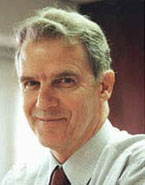
IN 2003
- As the University of Florida celebrated its 150th anniversary, the College of Liberal Arts and Sciences had many new initiatives on the horizon, including the construction of the world’s largest optical telescope on the Canary Islands off the coast of Spain and the continued development of the Center for the Humanities and the Public Sphere.

IN 2000
- Newman Nahas (English, ’00) was named a Rhodes Scholar. Nahas earned his JD from Harvard Law School and practices litigation in New York.
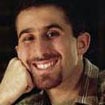
IN 1997
- Kenneth (’47 Mathematics) and Janet Keene donated a generous gift that allowed the college to start restoration of Anderson and Flint Halls. Under the direction of Rowe Architects, the buildings underwent renovations from 1999-2001 and are now listed on the National Register of Historic Places.
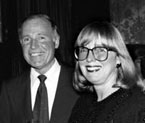
IN 1996
- The William and Grace Dial Center for Written and Oral Communication was created to prepare UF students to effectively use the conventions governing speaking and writing in their chosen disciplines. Kellie Roberts served as its director for over 17 years.
IN 1988
- Willard W. Harrison was hired as dean of the College of Liberal Arts and Sciences. He came to UF from the University of Virginia, where he served as chair of the chemistry department and associate provost. Harrison earned a BA in 1958 and MA in 1960, both in chemistry, from Southern Illinois University. In 1964, he earned a PhD in analytical chemistry from the University of Illinois. He served as dean of CLAS for almost 12 years before stepping down in July 2000 to devote more time to his chemistry research and teaching.

IN 1983
- Political science student Charlotte Mather became the first woman elected student body president at UF. Joan Warren, also a political science student, was the first woman to run for the job, back in 1969.

IN 1982
- Donald Justice joins the English Department and teaches until his retirement in 1992. Justice won the Pulitzer Prize for poetry in 1980 for Selected Poems. He passed away in 2004 in Iowa.
- The African and Asian Languages and Literatures department was founded. Although Arabic, Chinese, Hebrew, Japanese and Swahili had been taught on campus since the late 1960s, the college recognized the need to promote and enhance non-Western languages and cultures by a department committed to these areas. Haig Der-Houssikian served as the first chair of the department.
IN 1978
- University College was abolished after a long and acrimonious struggle, and its faculty were absorbed into the College of Arts and Sciences, which was renamed the College of Liberal Arts and Sciences. The College of Liberal Arts and Sciences became responsible for the supervision of general education and for awarding the associate of arts certificate.
- Charles F. Sidman was hired as dean of the College of Liberal Arts and Sciences. He came to UF from the University of Kansas, where he served for 18 years as a professor of history and then as chair of the history department. Sidman was born in 1931 in Cleveland, Ohio. He earned a BA and MA in history from John Carroll University in Cleveland in 1953 and 1956, respectively. He received a PhD in history from the University of Wisconsin, Madison in 1960. At UF, Sidman served as dean of both the College of Arts and Sciences and University College and had the job of integrating the two colleges into the College of Liberal Arts and Sciences. After stepping down as dean in 1988, Sidman taught German history in the Department of History before retiring in 1996. He currently resides in Gainesville.
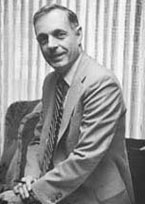
- Construction of Ralph Turlington Hall was completed on the site of one of the first structures on the University of Florida campus. The building was originally called General Purpose Building A (GPA), but was renamed Ralph Turlington Hall in honor of the former State Education Commissioner and UF business professor. Today, Turlington Hall is home to the college dean’s office and to many of the College’s departments and programs.
IN 1977
- The Women’s Studies Program was established, offering classes dedicated to exploring the perspectives of women. English Professor Irene Thompson served as its first director. In 1990, an interdisciplinary BA in women’s studies was approved and in 1992 a minor was passed. The program was changed into a Type II center in 1994 and was renamed the Center for Women’s Studies and Gender Research. In fall 2002, a master of arts program was established and the center currently offers several graduate degree options.
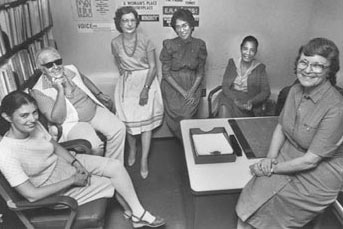
- Philosophy student Billy Kynes was named a Rhodes Scholar.
IN 1976
- Having served as an assistant dean since 1971, Ruth McQuown became the first female associate dean of the College of Arts and Sciences. McQuown, a political science professor and local political activist, died in August 1984. Room 219 in Dauer Hall — one of the nicest conference facilities on campus — was named in her honor in April 1993.
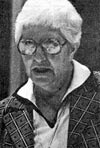
IN 1973
- The Center for Jewish Studies was established and in 1987 was approved by the Board of Regents to offer degrees. The center provides an undergraduate, interdepartmental curriculum, which serves as a basis for understandingthe broad spectrum of Jewish culture, religion, and civilization.
- The Center for Studies in Criminology and Law was established as a joint venture between sociology, psychology and political science. The center actually began this year as a criminal justice program, evolved by 1983 into the Institute for Studies in Criminology and Law, and was named the Center for Studies in Criminology and Law in 1985. The center, which is now part of the Department of Sociology and Criminology & Law, offers an interdisciplinary BA in criminology and law and gaduate degrees.
IN 1972
- Calvin Anthony VanderWerf was named dean of the College of Arts and Sciences. Born in 1917 in Wisconsin, he earned a BA from Hope College in 1937 and a PhD from Ohio State University in 1941. He served as professor and chair of the chemistry department at the University of Kansas before returning to his alma mater, Hope College, in 1963 to serve in the role of president. He came to UF as the dean of Arts and Sciences in 1972.
IN 1970
- UF hired its first black faculty and staff. The small group of eight included English professors Ronald C. Foreman and Betty Ingram.
- Mathematics Professor John Thompson won the Fields Medal, the highest prize for mathematics, equivalent to the prestigious Nobel Prize. In 2001, Thompson was awarded the highest honor bestowed upon a scientist by the US government, the National Medal of Science, by President Bill Clinton.
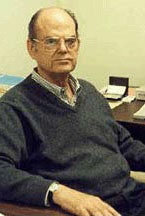
IN 1968
- Harry Hall Sisler was named dean of the College of Arts and Sciences. He was born in 1917 in Ohio and earned a BS from Ohio State University in 1936. He earned his MS and PhD from the University of Illinois in 1937 and 1939. He taught chemistry at the University of Kansas and Ohio State University before becoming professor and chair of the UF chemistry department in 1956. He also served as dean of the Graduate School and vice president of the university. Sisler retired in 1985 but continued to be an active part of the UF chemistry community until his death in December 2006.

IN 1968
- Alumnus Marshall Nirenberg (Zoology: ’48; MS’52) won the Nobel Prize for Physiology or Medicine for his work on deciphering the genetic code.
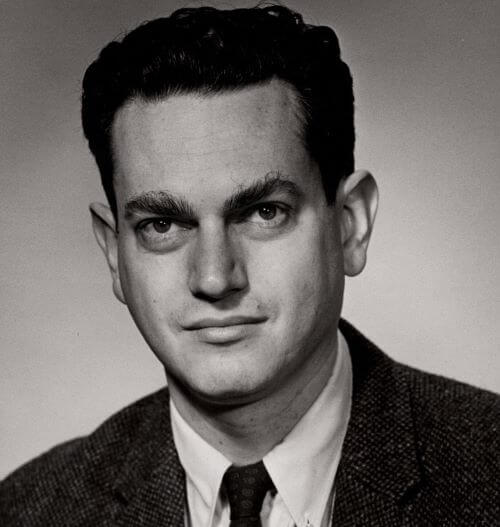
IN 1948
- Ralph Emerson Page was named dean of the College of Arts and Sciences. He was born in Middlebury, Indiana in 1903. He earned his AB from Bluffton College in Ohio in 1926 and attended Syracuse University 1927-1930, where he earned an MA and PhD. He taught at Syracuse University and served as professor and chair of the political science department at Bucknell University before coming to UF in 1948. He retired from the university in 1971.
IN 1947
- Dorothy Rethlingshafer became the first woman to join the faculty in the College of Arts and Sciences when she was hired by the Department of Psychology. At the time of her arrival, she had published many more articles than any other professor in the department. She was a key player in the development of the doctoral program and taught testing, development, learning and motivation courses. She was promoted to full professor at the time of her retirement in June 1970 and died a few weeks later.
IN 1938
- Marjorie Kinnan Rawlings taught a creative writing course at UF for the Department of English. Her book, The Yearling, won the Pulitzer Prize in 1939.
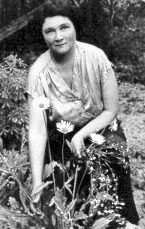
IN 1937
- Phi Beta Kappa, the oldest and most respected undergraduate honors organization in the U.S., founded a chapter at UF with the mission of fostering and recognizing excellence in the liberal arts and sciences.
IN 1935
- UF President John J. Tigert created General College out of concern that UF students were not getting a strong liberal arts education. Many universities across the nation formed general colleges in the 1930s to strengthen students’ core education and to provide better counseling services to undergraduates. The attrition rate was very high at the time—1/3 of first and second year UF students dropped out of college before their junior year. Through increased student counseling, General College helped to alleviate this problem. First and second year students at UF enrolled in General College and earned an associate of arts degree before entering the academic college of their choosing to complete their bachelor’s degree. In 1945, the college was renamed University College and the curriculum was changed to provide specific courses for those students who intended to enroll in one of the upper-division colleges and a general program of study for those students who sought only the associate of arts degree.
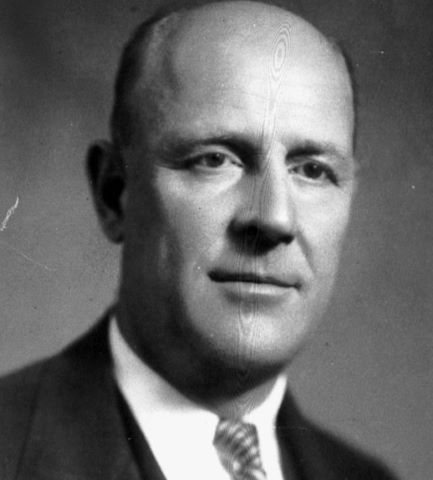
IN 1934
- Chemistry students John Morrow and Larry Amundsen earned the first PhDs awarded at the University of Florida. Morrow’s dissertation was entitled “The Dielectric Constant of Benzene.”
IN 1934
- Townes R. Leigh was named dean of the College of Arts and Sciences. He earned a BS from Iuka Normal School in 1901, an AB from Lebanon University in 1902 and a PhD from the University of Chicago in 1915. A pharmacist as well as a chemist, Leigh became head of the University of Florida Chemistry Department in 1920, and was the creator of the College of Pharmacy, serving as Dean from 1923 to 1933. He also became acting Vice President of the University in 1934, then Vice President from 1946 to 48. Leigh died in 1949.
- Leigh Hall, constructed in his honor, was opened in 1927 as the home for the Department of Chemistry and the College of Pharmacy, which moved to its own building in the early 1960’s.
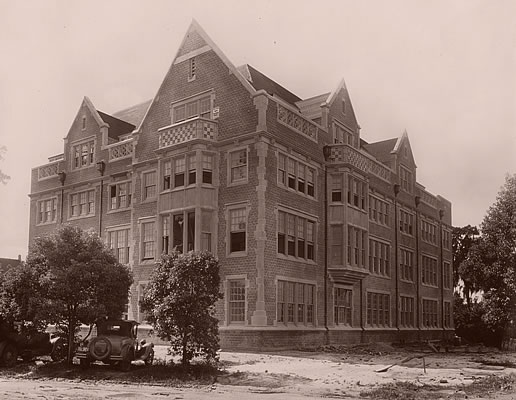
IN 1912
- Language Hall was constructed to house history, mathematics and the languages. It was later renamed Anderson Hall, in honor of Dean James Nesbitt Anderson. Today, Anderson Hall is home to the religion and political science departments.
- The College of Arts and Sciences graduated its first group of students. Five were granted bachelor’s degrees.
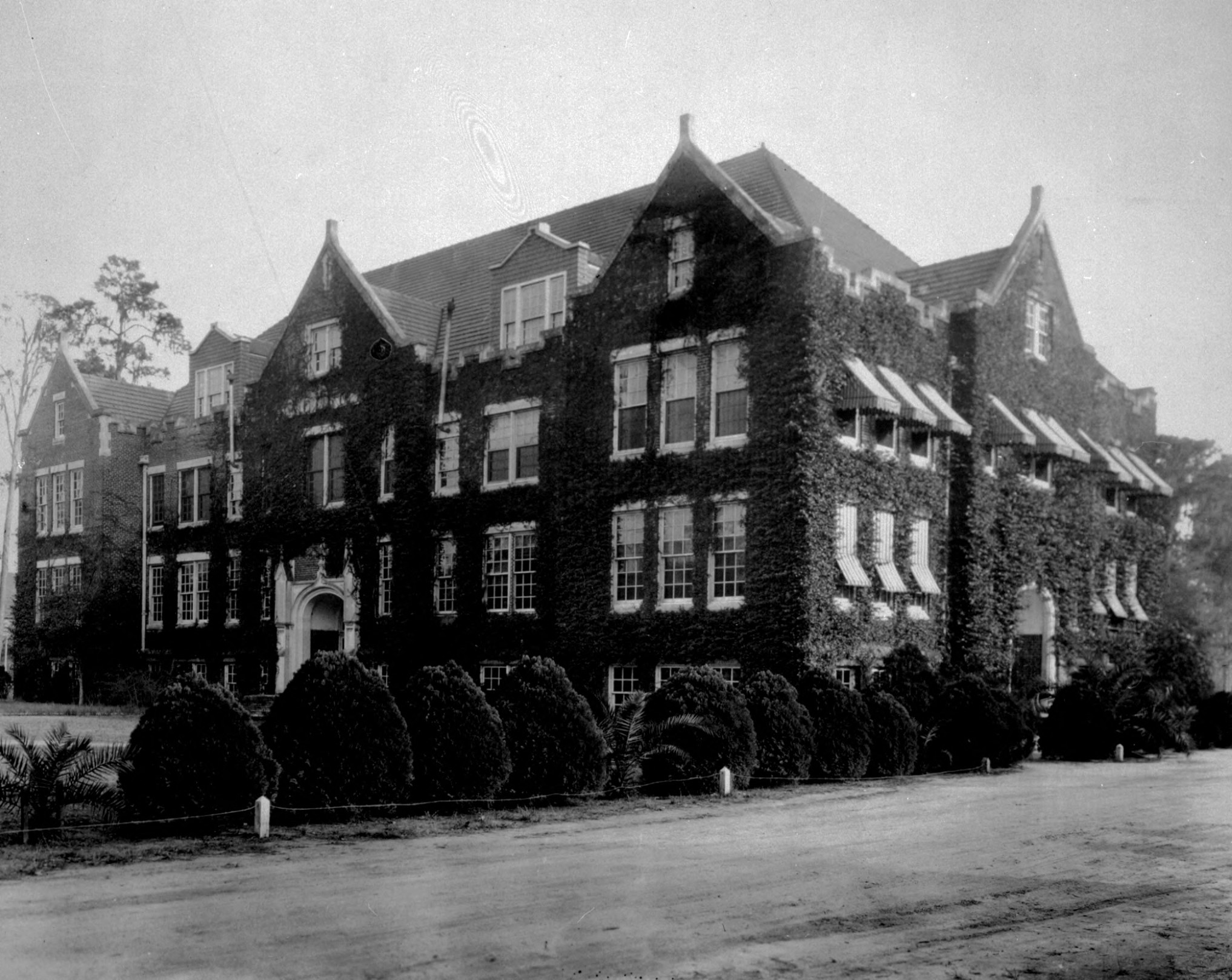
IN 1910
- The College of Arts and Sciences opened as part of a reorganization of the University of Florida. Prior to 1910, classes in the arts and sciences were taught in the School of Language and Literature and the General Scientific School. According to the University Record of May 1910, the University had been “reorganized with a view to bringing its organization and nomenclature into harmony with that of other institutions engaged in similar work and in order to attain a better coordination among its various lines of activity.” The new college had a staff of twelve and offered degrees in fourteen disciplines: Ancient Languages, Botany, Chemistry, Education, Secondary Education, English, Geology, History and Economics, Mathematics and Astronomy, Military Science and Tactics, Modern Languages, Philosophy, Physics, and Zoology and Bacteriology.
- Over the years, the college underwent constant change. Some of the original departments were transferred to new colleges; the education classes moved to the College of Education in 1913, Economics joined the College of Commerce and Journalism in 1920, and the military sciences became a separate division. A few departments — Botany, Chemistry, and Physics — left the college for short periods and returned. Courses in the fine arts were added, although these eventually became part of the College of Fine Arts. New departments were created; some of the early ones were Religion (1911), Geology and Biology (1913), Sociology and Political Science (1914), Speech (1917), and Psychology (1930).
- James Nesbitt Anderson was named the first dean of the College of Arts and Sciences. Born in 1864 in Laurens County, South Carolina, he went on to earn a BA and MA from the University of Virginia. He studied at Harvard University as a Morgan Fellow and later received a PhD from Johns Hopkins University. As a Greek and Latin professor at Vanderbilt University, he taught UF President John J. Tigert. Anderson came to UF in 1906 as professor and chair of the ancient languages department. In 1910 he became dean of the College of Arts and Sciences and in 1930 he was named dean of the Graduate School. He retired from the university in the summer of 1938 and died in June 1945.
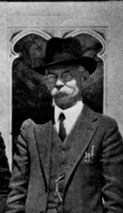
IN 1905
- The Buckman Act creates a new University of Florida. A chemistry student was awarded the University’s first master’s degree.
IN 1853
- East Florida Seminary opened its doors in Ocala. The University of Florida marks this as its founding date. Many of the courses offered today can be traced to the original courses offered then, including English, history, zoology and Latin.